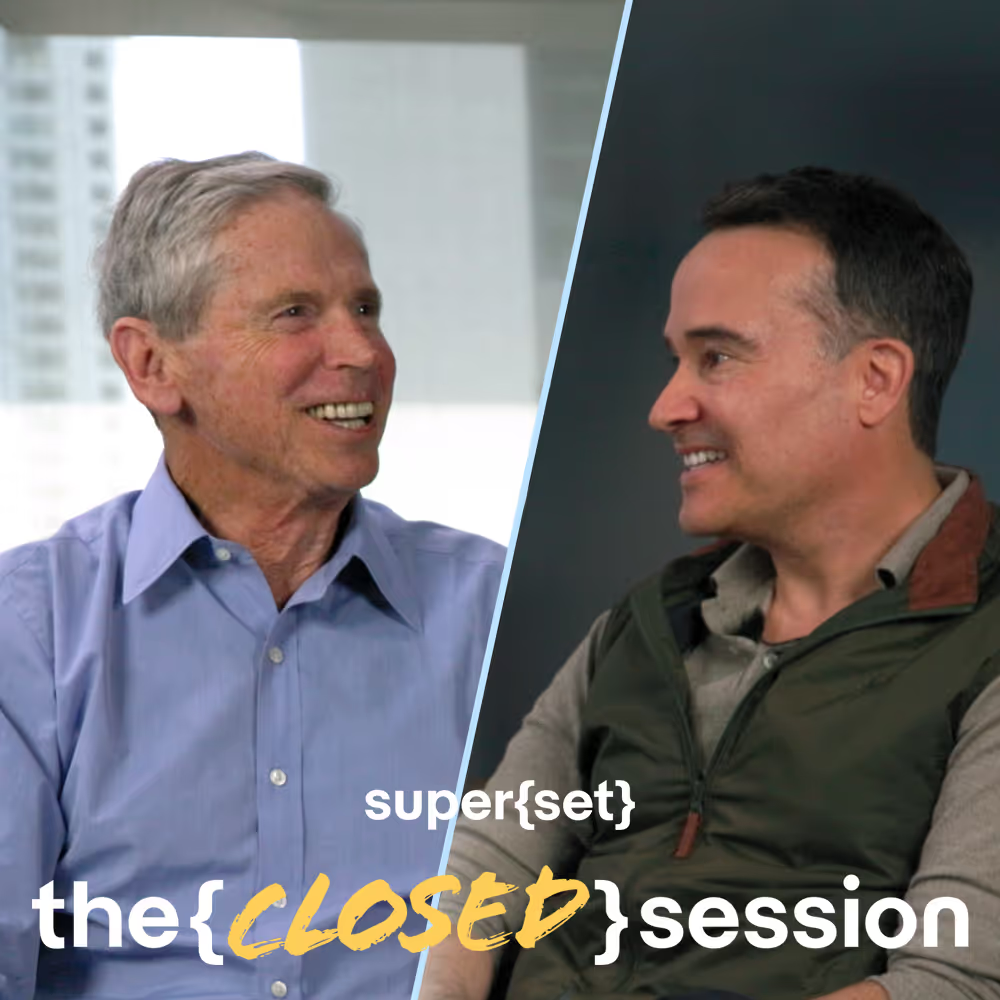
Arthur Patterson on Company Building
Arthur Patterson, the founder of venture capital firm Accel, sits down for a fireside chat with super{set} founding partner Tom Chavez as part of our biweekly super{set} Community Call.
Tom and Vivek sit back and review the tape - analyzing Arthur’s insight into company building across the dimensions of identifying the right talent, doing experiments, what the common thread is across the hits and misses, and a first-hand perspective on the demonic energy that helped keep Tom from being fired as CEO of his first venture.
Twice a month, the super{set} community comes together for a weekly call - often featuring fireside chats with outside speakers and friends of the super{set} Hive. On one such call, we were pleased to welcome Arthur Patterson - founder of the venture capital firm Accel and an investor in Tom and Vivek’s previous companies, Rapt and Krux.
Arthur Patterson is one of the greatest VCs of all time, founding Accel as an upstart in 1983 and building out the firm to become the powerhouse it is today. He’s an investor - not an operator himself - but he’s stood shoulder-to-shoulder with some of the world’s finest entrepreneurs and has plenty of insight into building successful software companies.
From digging into the Nietzschean energy and other qualities required to be a successful entrepreneur to Accel’s philosophy of “the prepared mind,” to identifying the homegrown unknowns that can become the core of your early team, and to what makes or breaks a successful company idea, Arthur has insights for us all.
Tech, startups & the big picture
Subscribe for sharp takes on innovation, markets, and the forces shaping our future.
More Episodes
Explore additional conversations with entrepreneurs, investors, and leaders shaping the future of tech and business.

